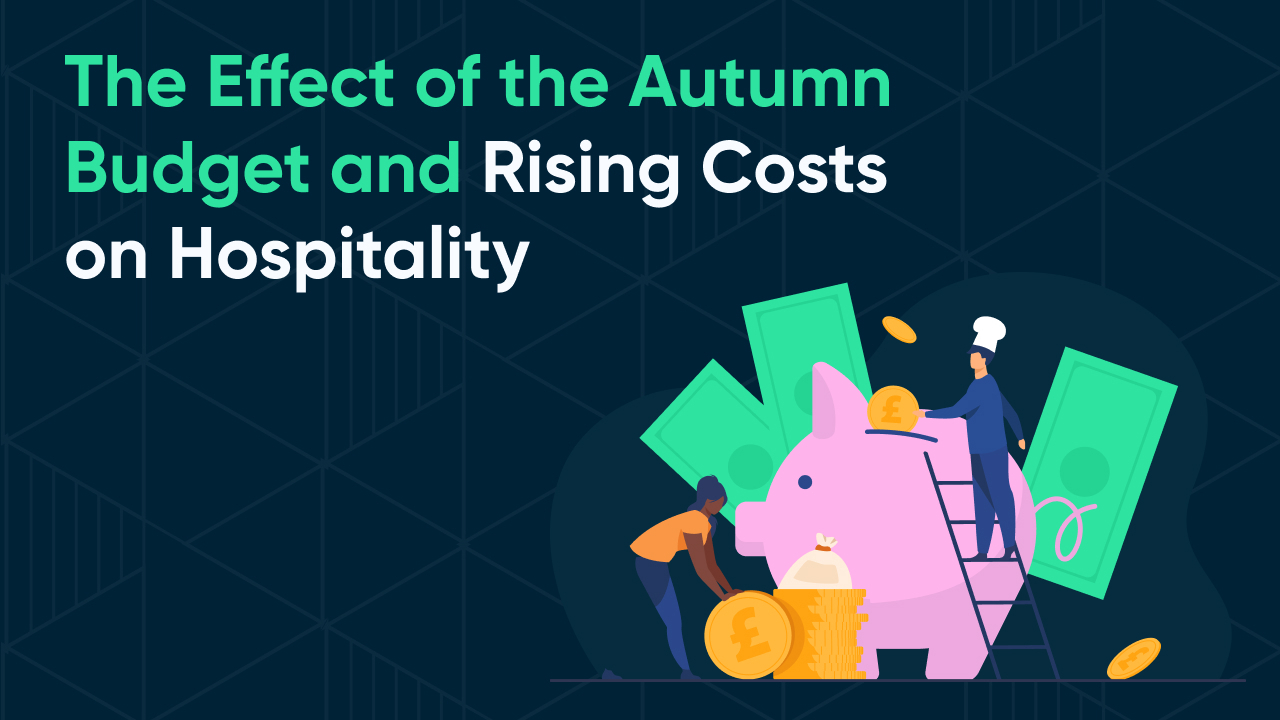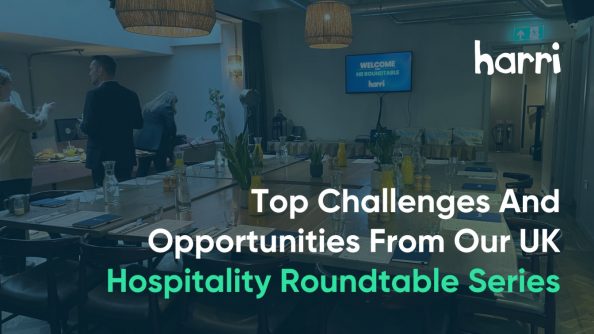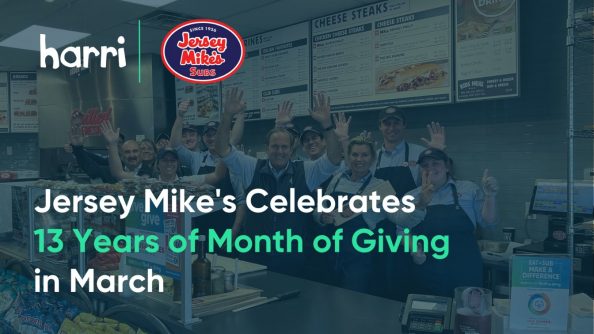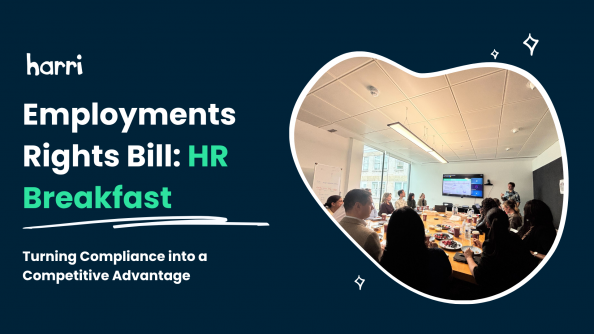The Effect of the Autumn Budget and Rising Costs on Hospitality

- By Harri Insider Team | November 12, 2021
For anyone operating a business in the hospitality sector, times aren’t great right now.
When it comes to operating costs, businesses are being hit from all sides, and the onslaught follows months of limited trade caused by the pandemic.
Widespread supply problems, gas price increases, rising inflation and now, an increase to the minimum wage, are all extra costs operators are having to bear, whilst also struggling with staffing shortages. Here we explore these issues in more detail, and consider the ways in which Harri can help ease some of the burden…
Gas Prices are Increasing in More Ways Than One
A global shortage of gas has increased prices around the world, with demand growing as economies emerge from the pandemic. In the UK, household and business energy bills have already increased and are set to rise further in the spring to reflect the increasing cost of wholesale gas.
A 70% rise in wholesale gas prices in August prompted CF Industries, a key CO2 producer in the UK, to stop production at its two fertiliser plants. With CO2 used to stun animals for slaughter, package meat, and in refrigeration systems, the move threatened disaster for the food and drink industry.
The government brokered a deal to safeguard CO2 supplies to UK businesses until the new year, but the agreement allows CF Industries to charge more for CO2, thus increasing costs for restaurant operators. Industry leaders have suggested a possible fivefold spike in the cost of CO2, which is essential in the production of pork, turkey and chicken, and is also used in fizzy drinks, beer, cheese, fruit and vegetables.
Ian Wright, chief executive of the Food and Drink Federation, said: “The increased cost of buying CO2 is yet another burden on the food and drink industry which is already facing enormous stresses. This will of course add more pressure on prices for shoppers and diners.”
Rising VAT Rates Could Significantly Hurt Many Hospitality Businesses
Keeping the VAT rate permanently at 12.5% was the top priority for operators in a pre-Budget poll by The Morning Advertiser, gaining almost half (47%) of the votes.
But Chancellor Rishi Sunak didn’t mention VAT at all in his latest Budget, leading operators to conclude it will return to 20% next year.
Greater Manchester night-time economy adviser and operator Sacha Lord said: “I am disappointed there was no reference to extending the current 12.5% VAT rate for hospitality which will return to 20% in April next year and see a surge of operators closing under the weight of the increase.”
He added: “Rises in inflation, supply chain issues and VAT increases are all burdens which are brutally impacting on an already beleaguered sector, and combined will result in venues closing, more staff being made redundant and tax bills left unpaid through bankruptcy.”
Labour and Materials Shortages are Driving Inflation
A double whammy of widespread supply problems and increased demand from the hospitality sector combined to push up prices by 1.2% in August, with fears of further rises in the months ahead. The latest edition of the CGA Prestige Foodservice Price Index revealed the damaging impacts of acute shortages of labour, in particular HGV drivers, pickers and manufacturing and production staff.
Andy Hodgson, client manager at CGA, said: “Hospitality is making a robust recovery from the Covid crisis, but these inflation figures threaten to stall the momentum that businesses have achieved.”
The labour crisis has led to shortages of manufactured products, with problems compounded by post-Brexit difficulties over imports of goods (which will only worsen when full border controls are introduced from 1st January). Shortages of packaging materials and harvest issues in some parts of the world have added to supply chain problems across foodservice.
At the same time, the sustained return of customers to hospitality venues since reopening in the summer has increased demand for food and drink items, further fuelling price inflation. Recent research published by CGA revealed that three-quarters of hospitality operators are likely to raise prices due to rising costs and supply chain problems, and a poll conducted by The Morning Advertiser also found that some 81% of pub operators are increasing prices in their businesses this year.
City Pub Group chairman Clive Watson said that the price of beer “would probably have to go up by 25 to 30p a pint” to take account of increasing costs, including the rise in the minimum wage.
Minimum Wage Rise is a Double-edged Sword
From April workers on the National Living Wage aged 23 and over will get a pay increase from £8.91 an hour to £9.50. The rise means a full-time worker will get £1,074 extra a year before tax. The move, announced in the Budget this week, follows the recommendation of independent advisers the Low Pay Commission. The National Minimum Wage for people aged 21-22 will rise from £8.36 to £9.18 an hour.
While the increase is great news for thousands of hospitality workers, it will be another blow for many businesses that are already struggling. City Pub Group chairman Clive Watson said that the rise in the National Living Wage would cost City Pub Group about £1m a year.
“We want to do our bit – it’s very important – but at the same time we don’t want everything going up the whole time, because all that will do is stoke inflation,” he added.
Salima Vellani, founder of restaurant chain Absurd Bird, said increasing the minimum wage “is the right move”, and that her company has been pushing up wages generally to retain staff. However, she said some operators will struggle with the new rates.
“It’s going to be a challenge for a lot of operators who are facing extreme costs,” said Vellani. “You’re going to have to pass some of this on to consumers, if your costs are going up.”
At least with Harri you can swiftly and easily ensure you’re fully compliant with the new rates: our wage compliance tool will automatically change an employee’s rate of pay based on a series of parameters – age, position or location – guaranteeing no employee is earning less than the National Minimum Wage in Harri, either hourly or salaried.
Where Harri Comes In
With costs rising across the board, one thing you can do without is wasting money on recruitment and training by either taking on the wrong person, or losing talented workers in a fiercely competitive labour market. Harri’s all-in-one HCM platform will help you avoid costly mistakes when it comes to finding and retaining staff.
Our talent acquisition suite will enable you to rapidly attract, source, and onboard best-match candidates for your vacancies, so you can get back to running at full capacity as soon as possible; our range of post-hire tools will ensure efficient teamwork, scheduling, and communications. According to our latest Employee Experience report, having a reliable, predictable schedule is the highest priority for workers, and our scheduling tools can help deliver just that.
If you’d like to learn more about how Harri can streamline your business costs, you can book a demo here.





















